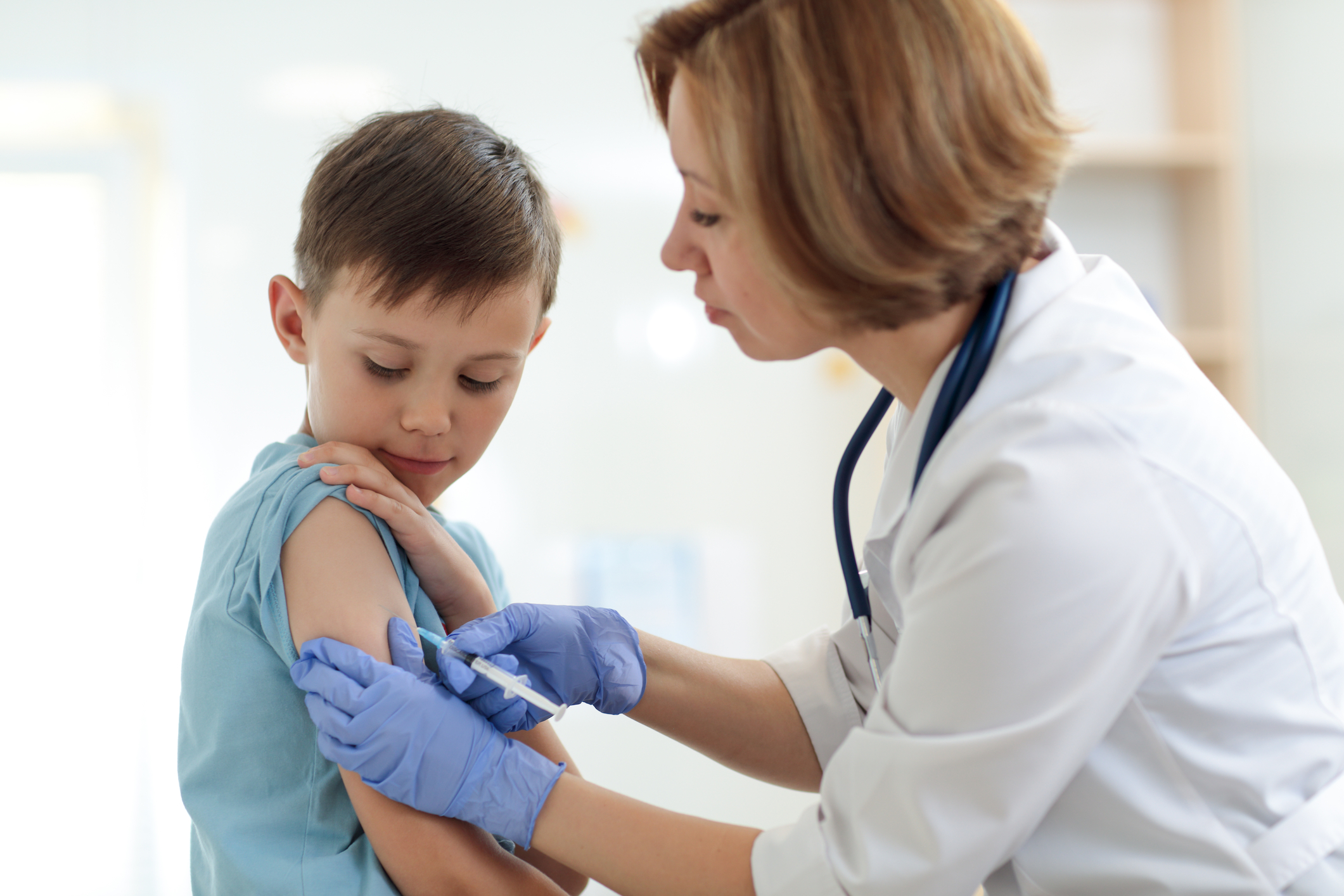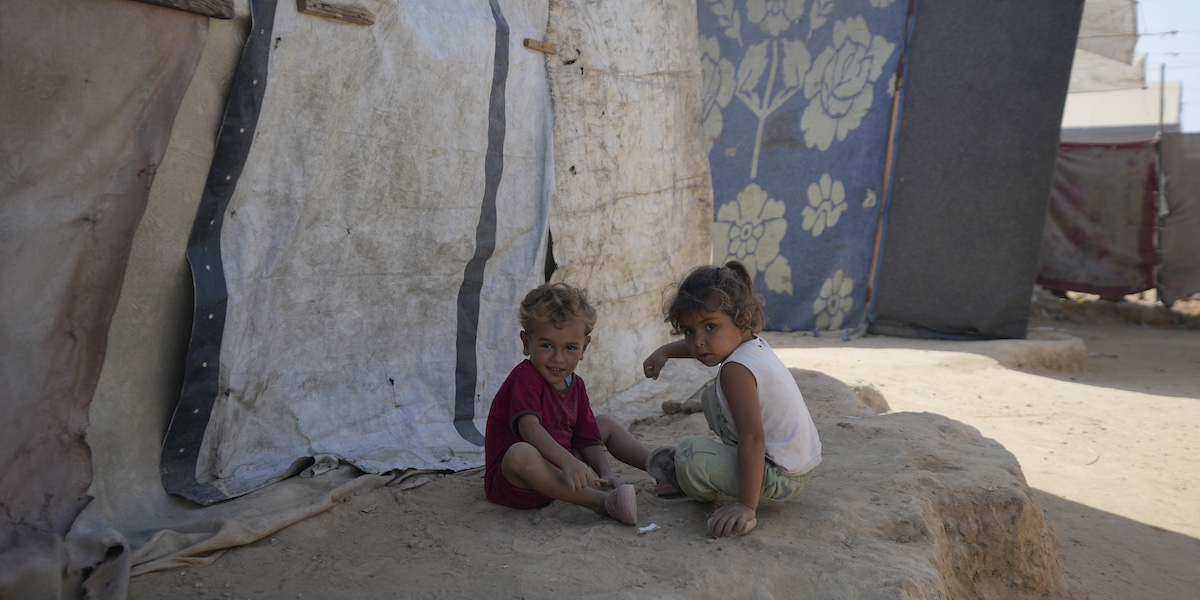Meningococcal disease, caused by the bacterium Neisseria meningitidis, is one of the most dangerous bacterial diseases. This can trigger meningitis, inflammation of the tissues that cover the brain and spinal cord, and septicemia, a serious form of blood infection. Unfortunately, the disease progresses quickly and can kill within hours if not treated in time. And sometimes those who survive are left with serious long-term sequelae. Anti-meningococcal vaccination is the most effective method of prevention. Children are particularly at risk, especially those under the age of four and teenagers.
According to the World Health Organization (WHO).WHO), in 2019, meningitis caused more than 250,000 deaths worldwide. Of these, bacterial meningitis is particularly worrying, with a mortality rate of around 1 in 6 cases and leaving 1 in 5 survivors with serious problems such as hearing loss, cognitive impairment or limb amputations.
In Romania, in 2019, 63 cases of meningococcal disease were diagnosed, according to data provided by the National Institute of Public Health.INSP). The age group most affected was children between 0 and 4 years, representing almost half of all cases. Worryingly, the death rate was 20.6%, with the majority of deaths among young children and young people between 15 and 24 years of age.
How does meningococcal disease present itself?
Meningococcal disease can present in two main forms. One is meningococcal meningitis, which occurs when bacteria infect the membranes that protect the brain and spinal cord. Common symptoms include:
- high fever,
- headache,
- neck stiffness,
- sensitivity to light,
- Confusion or change in mental state,
- Nausea and vomiting.
Meningococcal sepsis occurs when the bacteria enter the bloodstream and cause widespread disease. This type of infection can get worse quickly and symptoms can include:
- Fever and chills;
- Fast breathing;
- reddish-purple lesions or spots that do not disappear with pressure (sign of meningococcal sepsis);
- Extreme fatigue;
- cold hands and feet, soft or pale skin;
- Confusion and confusion.
right European Immunization Information Portalthe disease can quickly lead to serious complications, including brain damage, hearing loss, kidney failure and, in the most severe cases, death.
There are several strains of Neisseria meningitidis, but in Europe they are B (causes meningitis), C (also responsible for cases of meningitis), W and Y (causes both meningitis and other invasive diseases ) the most common serogroups.
It can leave long-term sequelae
Meningococcal disease is considered a medical emergency. According to the US Centers for Disease Control and Prevention (CDC), antibiotics are given only after diagnosis or even if the infection is strongly suspected. Prompt treatment can prevent the disease from getting worse and save lives. However, depending on the severity of the disease, the patient may need other interventions, such as respiratory support, medications to stabilize blood pressure, wound care for skin lesions, and, in extreme cases, surgery to remove necrotic tissue.
In some cases, survivors have long-term problems, including loss of limbs, deafness, neurological problems or even brain damage. According to the CDC, about 1 in 5 survivors are left with such sequelae, and the disease has a 15 percent mortality rate even with adequate treatment.
Children and young people are most at risk from the disease
The bacteria are usually spread through respiratory droplets produced by coughing, sneezing or close contact such as kissing. In crowded environments, such as university dormitories and military bases, the risk increases. right an expertteenagers and young people between 16 and 23 years of age are the most vulnerable to the disease. Although bacteria can be present in the nose and throat of some people without causing symptoms, in some cases it becomes aggressive and causes infections that develop quickly and can be fatal if not treated promptly.
In Romania, the studies reveals that 20-24 year olds are one of the most affected age groups in 2019. Babies are another vulnerable group due to a still developing immune system. According to INSP data, children under the age of 4 represented almost half of the confirmed cases of meningococcal disease in Romania in 2019.
When and for whom vaccination is recommended
Vaccination is the best way to prevent the disease. Meningococcal vaccines are available and recommended to protect against several serotypes of Neisseria meningitidis. right CDCthe most common vaccines are:
- MenACWY (meningococcal conjugate vaccine), recommended for all children aged 11 to 12 years, with a boost at 16 years. If the first dose is given after the age of 16, no further increase is required. The vaccine is also recommended for people older than 2 months who have certain medical conditions;
- MenB (meningococcal B vaccine), indicated for people over 10 years of age who are at high risk of infection. Also, teenagers between 16 and 23 can choose this vaccine for short-term protection, with the preferred age between 16 and 18;
- MenABCWY, a combination vaccine that provides protection against serotypes A, B, C, W and Y in one injection. It can replace the separate administration of MenACWY and MenB vaccines if both are indicated at the same time.
Vaccination against meningococcal disease is included in the requirements of many colleges and universities in the United States, which require proof of administration of MenACWY within the last five years before the start of the study.
Immunocompromised adults and those traveling to areas with a high incidence of meningococcal disease, such as certain regions of sub-Saharan Africa and Saudi Arabia, are also advised to get vaccinated. Saudi Arabia requires mandatory vaccination with ACWY conjugate vaccine for all pilgrims participating in Hajj or Umrah.
Vaccinations available in Romania
In Romania, the meningococcal vaccines available include the ACWY conjugate vaccine and the vaccine for serogroup B. None of these vaccines are provided free of charge by the immunization program national, so the purchase is based on a prescription issued by the family doctor or specialist. in infectious diseases.
ACWY vaccine (Menveo or Nimenrix) has a price that is between 208 and 212 lei per dose, in pharmacies in Romania. And the MenB vaccine (Bexsero or Trumemba) has a higher price, between 452 and 460 lei per dose.
ACWY conjugate vaccines are preferred for their ability to create immunological memory, an essential feature for long-term protection. Nimenrix can be given from 6 weeks of age and Menveo from 2 years of age.
Management tips:
- Children and children: it is recommended to vaccinate children starting at 6 weeks or 2 months of age, depending on the vaccination schedule;
- Teenagers: an initial dose at age 11-12, followed by an increase at age 16 to ensure protection against the disease;
- Adults: the vaccine is also recommended for adults at risk, especially those with compromised immunity or traveling to regions with a high rate of infection.
Bexsero and Trumemba protein vaccines are intended to protect against serogroup B (MenB) common in Europe, including Romania. Bexsero can be given from 2 months of age, and Trumemba is indicated for people 10 years and older.
In countries that have included the meningococcal vaccine in immunization programs, the impact has been significant. The UK, for example, introduced the MenB vaccine into the national infant immunization program in 2015 and has seen a rapid decline in cases of meningococcal disease in this age group. A study published in The New England Journal of Medicinein 2020, on the success of the MenB vaccination program in the UK, showing a nearly two-thirds reduction in meningococcal B meningitis and septicemia in young children.
Image source: Dreamstime.com
2024-11-08 14:50:00
#vaccinated #meningococcal #disease #children #dangerous #diseases #kill #hours #leave #consequences #HotNews.ro


